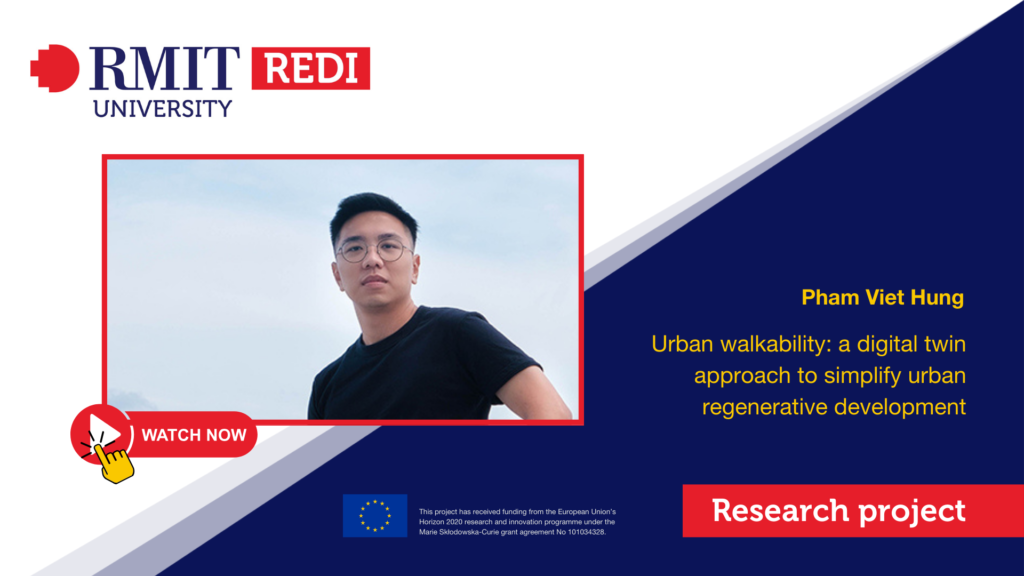Walkability is an important aspect of urban planning and regenerative design. Conventional urban design tools lack flexibility and immediacy for today’s urban planning. These conventional approaches can struggle to fully engage community stakeholders and limit their ability to reflect diverse perspectives and needs for urban development.
The research focuses on creating a framework using digital twin, virtual reality, and generative design to overcome these limitations. It aims to enhance the participatory aspect of urban planning, provide dynamic and immersive simulations of urban scenarios, and foster regenerative design principles.
This PhD aims to create a framework to improve the efficiency and effectiveness of urban planning processes, ensuring that urban development is more adaptive, inclusive, and sustainable, responding to both current needs and future challenges.
Watch a video about Hung’s project:
